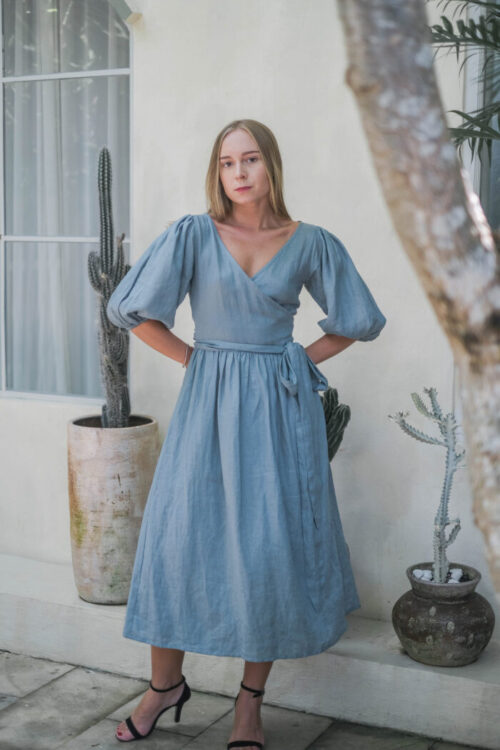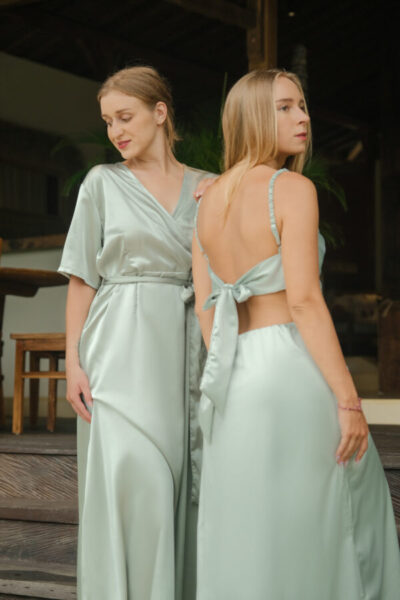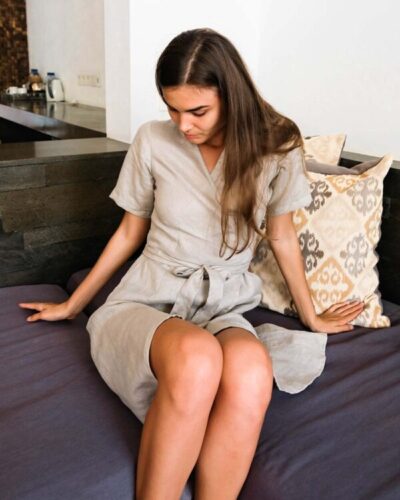When it comes to resort wear, most people think about breezy silhouettes, vibrant prints, and stylish cuts that complement a tropical lifestyle. But beyond aesthetics, the true essence of resort wear lies in comfort, breathability, and sustainability. In Bali, a hub for ethical fashion and artisanal craftsmanship, many brands are turning to natural fabrics such as linen, hemp, organic cotton, and rayon derived from plants to produce resort wear that is not only elegant but also eco-conscious.
Natural Fabrics vs Synthetic Fabrics in Resort Wear
Synthetic fabrics like polyester and nylon may seem practical due to their durability and affordability, but they often lack breathability. In hot and humid climates like Bali, these fabrics can trap heat, leading to discomfort and skin irritation. On the other hand, natural fabrics are breathable, biodegradable, and skin-friendly. Linen and cotton, for example, wick away moisture and regulate body temperature, making them perfect for resort wear designed for tropical weather. Hemp adds durability while remaining lightweight, and silk offers a touch of timeless luxury—all while being gentler on the skin compared to synthetics.
Why Natural Fabrics Are Ideal for Bali’s Climate
Bali’s tropical climate calls for clothing that keeps you cool and comfortable all day long. Linen is especially celebrated for resort wear because of its natural cooling properties and ability to absorb and release moisture quickly. Hemp resists bacteria growth and becomes softer with each wash, making it ideal for long-lasting garments. Organic cotton is gentle on sensitive skin and ensures proper airflow, reducing irritation and redness. By choosing natural fabrics, resort wear becomes more than just a fashion choice—it becomes a wellness choice.
Sustainability and Style Go Hand in Hand
One of the strongest arguments for natural fabrics in resort wear is their sustainability. Unlike synthetics, which shed microplastics and take centuries to decompose, natural fibers return to the earth without leaving behind toxic residue. Linen, made from flax, requires minimal water and pesticides, while hemp grows quickly and regenerates soil health. These eco-friendly properties make them ideal for brands that want to align style with sustainability. Resort wear made from such fabrics is not only luxurious but also timeless, offering elegance that lasts beyond seasonal trends.
The Bali Advantage: Craftsmanship Meets Conscious Fashion
Bali has become a global hub for sustainable resort wear because of its skilled artisans and small-scale manufacturers who prioritize quality over quantity. Many local producers collaborate directly with designers and boutique brands to create custom resort wear collections that reflect both cultural artistry and eco-conscious values. By combining natural fabrics with Bali’s heritage of craftsmanship, resort wear made here embodies the perfect balance of sustainability, beauty, and comfort.
Building a Movement Through Collaboration
Sustainable fashion is not a solo journey. Increasingly, brands are partnering with ethical manufacturers and fabric suppliers to ensure transparency, fair labor practices, and innovation in natural textiles. These collaborations help designers create resort wear that supports both people and the planet, while also offering consumers high-quality garments that are healthier for their skin and lifestyle.
Conclusion: A Future of Sustainable Resort Wear
The resort wear you choose to wear isn’t just about looking stylish on holiday—it’s about making a conscious choice for your skin and for the planet. Natural fabrics like linen, hemp, organic cotton, and silk are breathable, biodegradable, and timeless, making them the ultimate choice for sustainable resort wear in Bali. By supporting collaborations between ethical manufacturers and sustainable fabric producers, we can redefine resort wear as not just fashion, but a lifestyle rooted in wellness and responsibility. Choosing natural fabrics for resort wear means choosing comfort, elegance, and a lighter footprint on the earth—qualities that make sustainability not just a trend, but a way of living.










